Is science going through a critical stage?
This is an old paper by Luigi Foschini about the problem of interpretation of quantum physics which has raised a discussion about the effectiveness of science and its limits;
Is Science going through a critical stage?
The unexpected discoveries at the beginning of the century, particularly thanks to Heisenberg, Bohr, and Godel, has driven the science to drastic changes, opening new, extraordinary, and infinite research fields. After this, many scientists saw, and still today see, a crisis, with dreadful meaning, in the science. However, this crisis is only present in that type of science, driven by determinism, which is strictly linked to the common sense.
In this paper the author answers the question of the title negatively; Science and specifically physics is not in crisis,what happens is that for the first time quantum physics forces us to face the “hypotheses of effectiveness” of every theory in physics that consists of excluding factors of the problem in order to make it simpler and thus available to study;
How many times one has supposed it ideal (rigid bodies, geometrical bodies, material points). How many times one supposes that the resistance of an electric device is negligible? How many times is friction considered negligible? And taking into consideration the two-bodies problem, one forgets the interactions among the bodies of the universe, isn’t it? Physics and engineering are permeated with hypothesis of this kind, without which we could not adventure in building models or formulating theories. The more or less indirect consequences for engineering are constituted by the introduction of the safety factor, by the concept of reliability of devices; in physics we speak about the experimental errors, the domain of validity of a theory and so on.With all these hypotheses, how could one say what is the nature? This is nota mere philosophical speculation, a sophism, a formal problem.
What is in crisis is the old deterministic view that we can complete science in the way that it can describe everything. That is has not happened in physics (” the unified theory of everything”) but -most important- cannot happen with the formal language of physics; mathematics.
However, one is not allowed to think that mathematics is the last hope for Determinism. As a matter of fact the analogous of the principles of indeterminacy for mathematics was expressed by Kurt G ̈del in 1931 [7]. In his article, he stated the impossibility to realize the hilbertian program: in 1900, during the Second International Congress of Mathematicians in Paris, David Hilbert introduced a list of 23 problems which covered the most different fields of mathematics [10]. Among these, point 2, relative to the demonstration of non-contradiction of arithmetics, deserves a particular attention. From Hilbert’s viewpoint all mathematical theories should have been reduced to formal systems: then this would have been enough to demonstrate the non-contradiction. In 1930, G ̈del wrote an article, which was published one year later where he demonstrated that this was not possible. As a matter of facts, within a sytem like that expressed by Bertrand Russell and Alfred N. Whitehead in the Principia Mathematica it is possible to express propositions which are not decidable within the system’s axioms. One can view this as the impossibility of defining each concept through a unique and defined linguistic universe.
Crisis is not something to fear of -as the title of the blog you are reading suggests also;
Using the term ‘crisis’ they suggest something dreadful, that will lead to the very end of science. Some scientists think that this crisis is already operating and it is the result of the principles up to now discussed, others think it will come along with the Great Unified Theory. Nevertheless, the word ‘crisis’ shows no dreadful meanings: it derives from the Greek κρισις, which in turn is linked to κρινω, which means ‘to divide’ and metaphorically ‘to decide’ 2 . It were the Greeks the first to introduce the process of analysis as a division of a thesis in propositions, leading more easily to truth. If, within a theory, we separate or, better, underline, some essential laws we could then consider them as principles for a new theory.
————————————————————————————————————————————————————-
Further reading
Is quantum physics weird?
Why quantum physics is believed to be so weird? Can we understand it without reading tons of scientific formalism? The answer depends on the incentive behind the question;
What people mean by saying that quantum physics is weird? Let’s see some possible reasons;
Formalism
Is it because you cannot understand the formalism? The formalism itself is not weird; maybe it is hard besause you are not so familiar with the mathematics behind it.
Insight
Is it because you cannot get the physical insight behind it? Then welcome to physics; the hardest part in any physics discipline is not to use the mathematics, but to develop an intuitive understanding by grasping the insight of the theory. This ability is very hard to be taught.
Uncertainty
Is it because you cannot accept the philosophical implications of quantum physics? Then we have you have to clarify a little more; What do you mean by philosophical implications? Is it that you are worried that the famous cat cannot be both dead and alive in the same time¹? Which means that you don’t like the innate uncertainty that quantum physics is introducing? In this case you assume that classical physics does not lead to any cats that they are dead and alive in the same time. But is this really true?
Classical physics
Classical physics is a study of how things, like stellar objects and planets, can move relative to one another in a regular fashion. In the language of classical physics, in order that we can have a theory about a certain subject matter we must presuppose that we already have two things in place;
a) We must have a kinematical framework in which we can define how the things to be studied might be distributed in space and time
b) We must have a dynamical understanding of the powers and properties that might successively occupy specific places in space.
The first framework is provided by the Cartesian analytic geometry. The second framework is provided by Newtonian laws, which they describe the evolution of things in space and time.
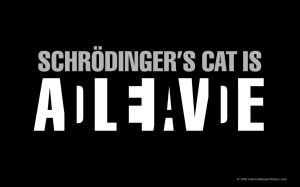 Classical physics offers a very important promise; if we know the initial state parameters of a system, theoretically, we can solve the equations that describe the dynamics of the system and know the full behavior of the system in the past and the future. In simple worlds it means that if your cat is missing then if you put all the parameters of the system in a super computer that solves the dynamics of the world that you live in, you can find out with 100% certainty if your cat is dead or alive. The cat cannot be both dead and alive in the same time.
Classical physics offers a very important promise; if we know the initial state parameters of a system, theoretically, we can solve the equations that describe the dynamics of the system and know the full behavior of the system in the past and the future. In simple worlds it means that if your cat is missing then if you put all the parameters of the system in a super computer that solves the dynamics of the world that you live in, you can find out with 100% certainty if your cat is dead or alive. The cat cannot be both dead and alive in the same time.
But there are some objections there;
1. Chaos: Even if a system is deterministic it cannot be 100% predictable, and that is because you can not measure the initial state parameters with infinite accuracy.
2. Complexity: Let’s assume that we don’t care about chaos, because we have found a way to measure with infinite accuracy. Then we face some problems that they derive form computer science; How long will it take for this super computer to decide if the cat is dead or alive? If it takes more that a cat’s life time then we don’t need to perform the calculation because the cat is 100% dead. The problems is now transformed from pure physics to pure computational complexity.
3. Let’s assume now that we are lucky and the complexity of the calculations is not a problem (we have a super computer, and the equations of the dynamics of the world is an easy problem). Even in the situation that we can we really solve the equations for the whole universe and find out the position and speed of every single elementary particle of the world at any given time, can we really sort this kind of information? Imagine that we are talking about all the elementary particles of the world, even for a single snapshot you have a problem of storage; since the unit of storage cannot be smaller than one elementary particle! You cannot even describe a single snapshot of the universe , which means that there are points in the universe that you are uncertain of their properties. Maybe you can calculate if the cat is alive but then you cannot know what is the situation of all the cats in the universe!
So uncertainty can’t be the reason that quantum physics is considered weird.
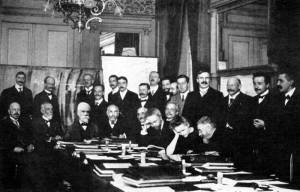
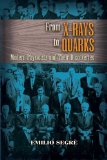
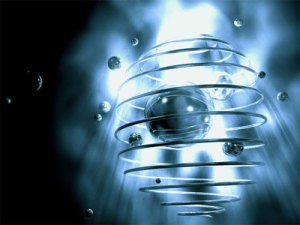

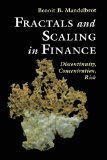



1 comment